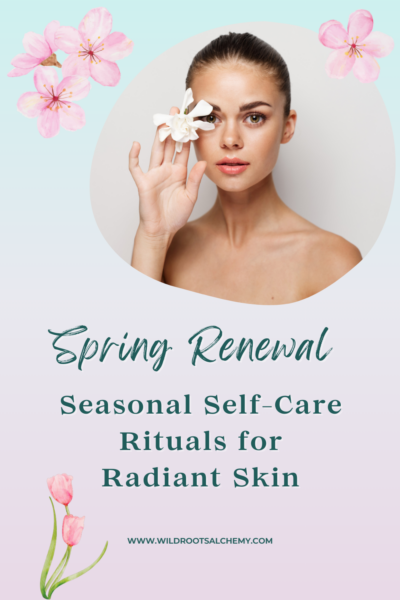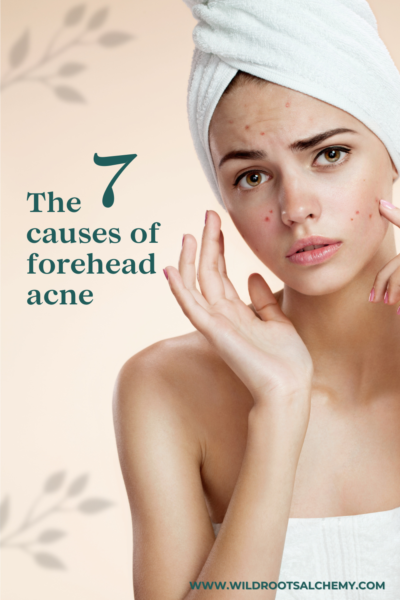
Have you ever noticed that your acne flares with stress, like when you take on too many projects or commitments?
Or that you can eat sugar or dairy without breaking out one day, but then eat those same foods while stressed to the max, and your skin decides to go crazy??
The role of stress and its effects on your nervous system, hormones, and inflammatory conditions like acne can’t be underestimated! If we’re talking root causes, a poor response to stress is one of the major players in acne formation.
Let’s be real: Stress is totally unavoidable. You can’t avoid stressors just like you can’t avoid sunlight or the air you breathe.
It’s really not about the stress; it’s about how you RESPOND to the stress. You need stress in your life in order to mold your mind and your body, and to grow and evolve.
Do you resonate with any of these stressors?
- You opt for another coffee fix instead of eating a nourishing meal to get you through the day
- You have a hard time saying “no” so you end up taking on too many commitments or projects
- You constantly talk down to yourself in your mind, creating a spiral of negative emotions that keep you feel stressed, unworthy, unloveable, and not good enough
- You feel like much of your stress is related to stuck emotions or past traumas
Stressors can be physical (like toxins in your environment, too much coffee, or eating a poor diet) or psychological (your thoughts and emotions). For most of us, much of our day-to-day stress is actually psychological.
But this is a good thing! It means you have a lot more control over how you experience stress than you likely imagine.

How a Poor Stress Response Leads to Acne
A poor response to stress taxes your nervous system. Your nervous system is in constant communication to your immune system and all of your endocrine organs, which can lead to hormonal imbalances that are all associated with acne:
- Cortisol dysregulation (stress causes your adrenal glands to release cortisol, which weakens your immune system over time)
- Estrogen, progesterone, and testosterone imbalances
- Blood sugar imbalances
So while we often blame the hormones (although they do play a role!), it’s your nervous system that’s responsible for keeping your hormones in balance and any inflammation under control.
“Wait, what about my adrenals?”
Have you ever heard that you need to “support your adrenals” to heal your skin or balance your hormones? While this can be true, often the nervous system is what needs to be supported first in order for the adrenals to heal!
I often see my patients and clients try herbs and supplements that are meant to support adrenal function, but they don’t get any relief from their symptoms (or sometimes they experiencing a worsening of acne, mood, or other symptoms). This is likely because while their adrenals might be suffering, it’s their nervous systems that need the most love and support!

How to Improve Your Response to Stress
1. Start saying “NO”
Can you start saying “no” to those extra projects at work? Can you start delegating tasks you don’t want to do to other people? Can you cut that toxic “friend” out of your life who leaves you feeling drained?When you start saying “NO” to things you don’t want in your life, you start saying “YES” to all the things you do want–like clear skin!
Here’s a pearl for you: Skin conditions are often a physical expression in those who struggle with there boundaries. Once you assert your own personal boundary of what you will and won’t let into your life, your physical boundary–your skin–feels nourish and protected, and can finally start to heal.
2. Cut out the sugar
Added sugar taxes your body, period. It strains your nervous system and your adrenal glands, messes up your hormones, and contributes to chronic inflammation.
3. Have a regular sleep/wake cycle
Go to bed at the same time every night and wake up at the same time every morning, at least 5 days per week. Adequate sleep and a healthy circadian rhythm are key for an optimal response to stress.
4. Be kind to yourself
Start to become aware of your self-talk (that little voice in your head that constantly says things about you). Are you always putting yourself down? Making yourself feel bad about yourself or the choices you make? Recognize when you have negative self-talk, and then talk to yourself like you’d talk to a friend who was saying the same thing. You would help your friends feel better about themselves, wouldn’t you? Do the same for your own beautiful self!
Are you on a journey to naturally clear skin? Download my FREE guide to healing acne, one day at a time: “7 Days to Clearer Skin.”





